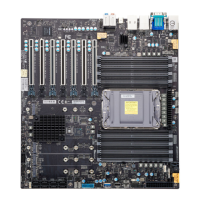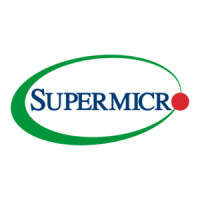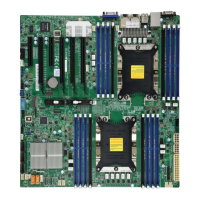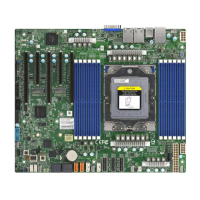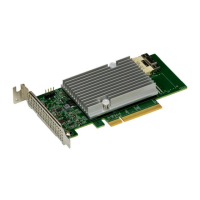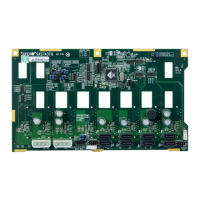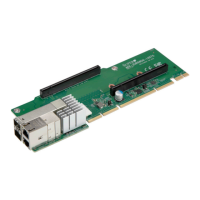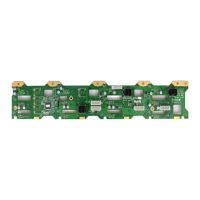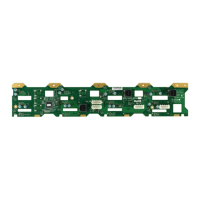Do you have a question about the Supermicro X12SPW-TF and is the answer not in the manual?
Details the manual's purpose and provides information about the motherboard.
Explains manual conventions and lists Supermicro contact details.
Lists main parts in the retail box and provides essential website links for drivers and manuals.
Details key motherboard specifications including CPU, memory, expansion slots, and I/O.
Provides an overview of the 3rd Gen Intel Xeon Scalable Processor and Intel PCH C621A chipset.
Explains system health monitoring features like voltage and temperature monitoring, and ACPI power management.
Details power supply requirements and serial port capabilities of the motherboard.
Provides a table listing jumpers, LEDs, and connectors with their definitions and default settings.
Provides precautions for handling static-sensitive components and guidelines for unpacking the motherboard.
Step-by-step guide for installing the CPU, heatsink module, and related components.
Covers tools needed, location of mounting holes, and the process of installing the motherboard into a chassis.
Details memory support, guidelines for performance optimization, and DIMM installation/removal.
Locates and describes rear I/O ports, front panel connectors, and various internal headers.
Explains how jumpers work and details specific settings for CMOS clear, LAN enable/disable, and manufacturing mode.
Describes the function and state of various LEDs on the motherboard, including LAN, IPMI, UID, and Power LEDs.
Guides through common issues like no power, boot failure, memory errors, and system instability.
Provides steps for contacting technical support and answers frequently asked questions.
Details battery removal/installation steps and procedures for returning merchandise for service.
Introduces the AMIBIOS Setup utility and explains how to enter the system's BIOS setup.
Details the options available on the Main BIOS setup screen, including date, time, and version information.
Covers detailed system configuration options categorized by CPU, memory, storage, network, PCIe, and more.
Explains how to configure SMBIOS event logging, including enabling/disabling and erasing log entries.
Details Intelligent Platform Management Interface (IPMI) settings for BMC firmware, system event logs, and network configuration.
Covers password management, hard drive security, secure boot options, and trusted computing features.
Explains how to configure boot mode, priorities, and options for various boot devices like UEFI, Legacy, and PXE.
Describes options for saving changes, discarding defaults, loading defaults, and exiting the BIOS setup utility.
Provides instructions for downloading and installing motherboard drivers and utilities from Supermicro.
Details the SuperDoctor 5 hardware monitoring program for system health information and remote management.
Explains the Intelligent Platform Interface (IPMI) for remote access, monitoring, and management.
Provides warnings regarding battery replacement, explosion risks, and proper disposal procedures.
Informs users about national laws and regulations for the proper disposal of the product.
| Form Factor | ATX |
|---|---|
| Socket | LGA 4189 |
| Chipset | Intel C621A |
| Memory Slots | 8 |
| Maximum Memory | 2TB |
| PCIe 4.0 x16 Slots | 7 |
| Other Expansion Slots | 1 x PCIe 4.0 x8 (in x16 slot) |
| M.2 Slots | 2 |
| SATA Ports | 8 |
| SAS Ports | 8 |
| Video Ports | 1 x VGA |
| Supported Memory Types | DDR4-3200 |
| Network Interface | 2 x 10GbE |
| USB Ports (Front) | 2 x USB 3.0 |
| Power Connector | 24-pin ATX |
